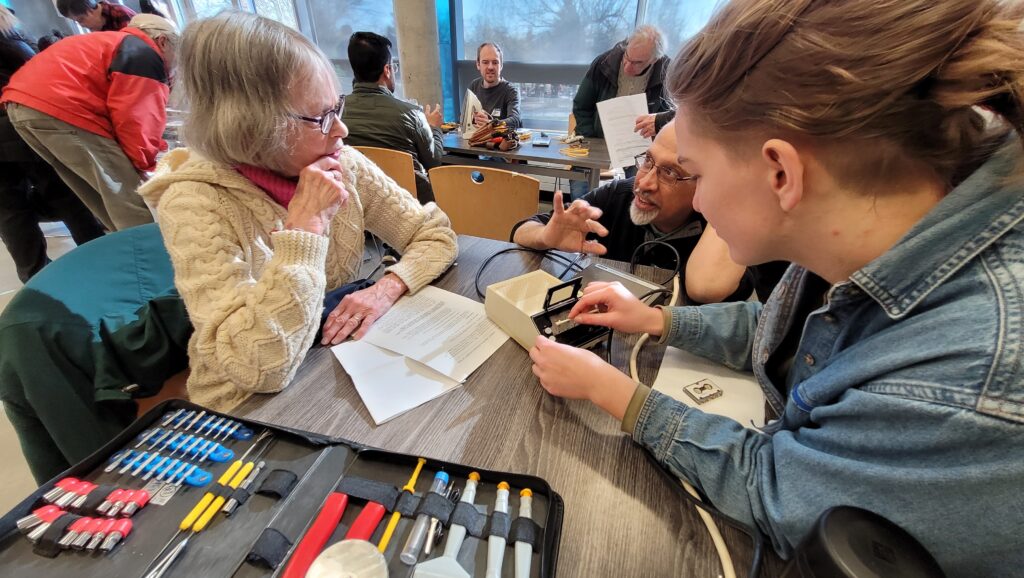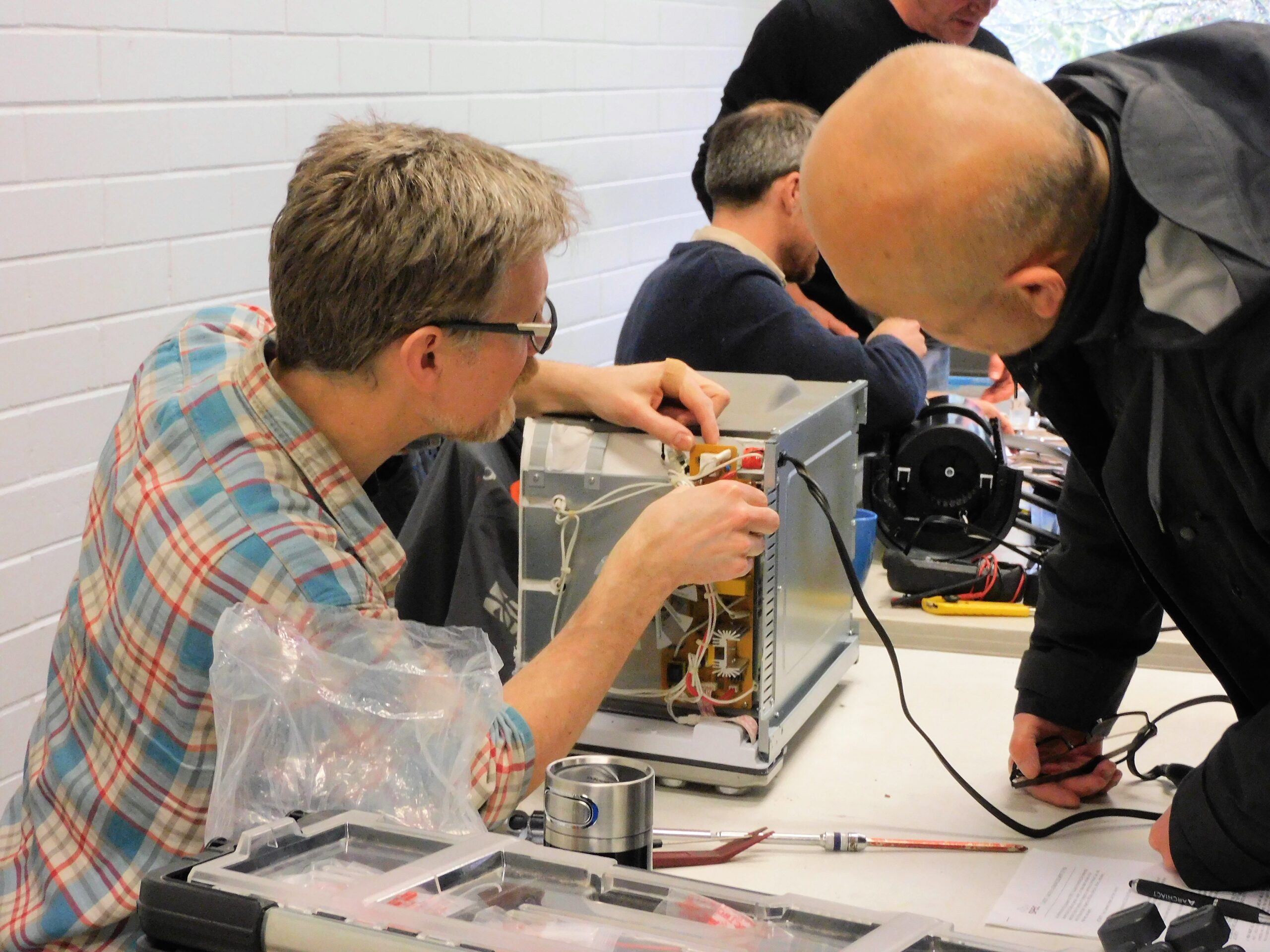November 2023
In a world where disposability often reigns, the rise of Repair Cafés stands as a beacon of hope for a more sustainable future. These community-driven spaces, such as SPEC’s Repair Cafés in Vancouver, play a vital role in promoting the circular economy – an economic model focused on reducing waste and promoting resource efficiency. Let’s dive into how Repair Cafés contribute to this transformative concept and explore a few other ways individuals can actively participate in the circular economy.
Repair Cafés: A Circular Economy Hub
At the heart of the circular economy is the idea of extending the lifespan of products and minimizing waste. Repair Cafés embody this principle by offering a space where skilled volunteers help mend broken items, giving them a new lease on life. But it’s not just about fixing; it’s about changing our mindset from a throwaway culture to one that values and preserves the things we own.

SPEC Repair Cafe in action (2023).
Repair Cafés contribute to the circular economy in several key ways:
Extending Product Lifespan: By fixing items instead of discarding them, Repair Cafés actively combat the culture of planned obsolescence, where products are intentionally designed to have a limited lifespan.
Reducing Landfill Waste: Every time a skilled hand mends an item at Repair Cafés, it’s more than a fix; it’s a triumph against landfill proliferation. By actively diverting items from the waste stream, Repair Cafe fixers serve as zero waste heroes, directly confronting the environmental repercussions of our consumer habits.
Community Building: Beyond repairing physical items, Repair Cafés build a sense of community. They connect people, foster knowledge exchange, and promote a shared commitment to sustainability.
Education and Outreach: Taking Repairs Beyond the Cafe
When participants bring in their items for repair, they’re not just receiving a fixed product; they’re invited into a dynamic learning experience. Our welcoming atmosphere encourages them to observe, ask questions, and, if they’re inclined, become an active part of the repair process. Volunteer fixers generously share their expertise, guiding participants through the intricate details of the repair process. By doing so, they empower individuals with practical insights and hands-on knowledge that extends beyond the immediate fix, fostering a deeper understanding of how to address similar issues in the future.

Beyond Repair Cafés: Individual Actions for a Circular Economy
While Repair Cafés provide a tangible and community-driven way to embrace the circular economy, there are numerous other actions individuals can take in their daily lives:
- Choose Quality Over Quantity: Opt for well-made, durable products that are designed to last. This conscious choice reduces the need for frequent replacements.
- Embrace Secondhand and Upcycling: Give a second life to items by exploring thrift stores, secondhand markets, or upcycling projects. Upcycling not only reduces waste but also adds a personal touch to your belongings.
- Practice Responsible Disposal: When an item reaches the end of its life, ensure proper disposal through recycling or repurposing. Many electronic devices, for example, can be recycled to recover valuable materials.
- Participate in Clothing Swaps: Extend the life of clothing by participating in or organizing clothing swaps with friends, family, or community members. It’s a sustainable way to refresh your wardrobe.
- Support Sustainable Brands: Choose products from companies committed to sustainable and ethical practices. Supporting businesses with circular economy principles contributes to the growth of a more responsible marketplace.
- Learn simple repair skills: By learning simple repair skills (like sewing on a button, patching a bike tire, or re-gluing loose furniture joints), you equip yourself with knowledge and confidence to make your items last!
As we witness the positive impact of Repair Cafés and individual actions, it becomes clear that every choice we make can play a part in creating a circular economy. By embracing repair culture and adopting mindful consumption habits, we collectively contribute to a more sustainable and resilient future.
So, let’s keep the circular momentum going. Repair, reuse, and reimagine a world where our choices create a positive ripple effect for generations to come.
To support zero waste heroes on the front lines of the circular economy movement, donate to SPEC’s annual fundraiser HERE.